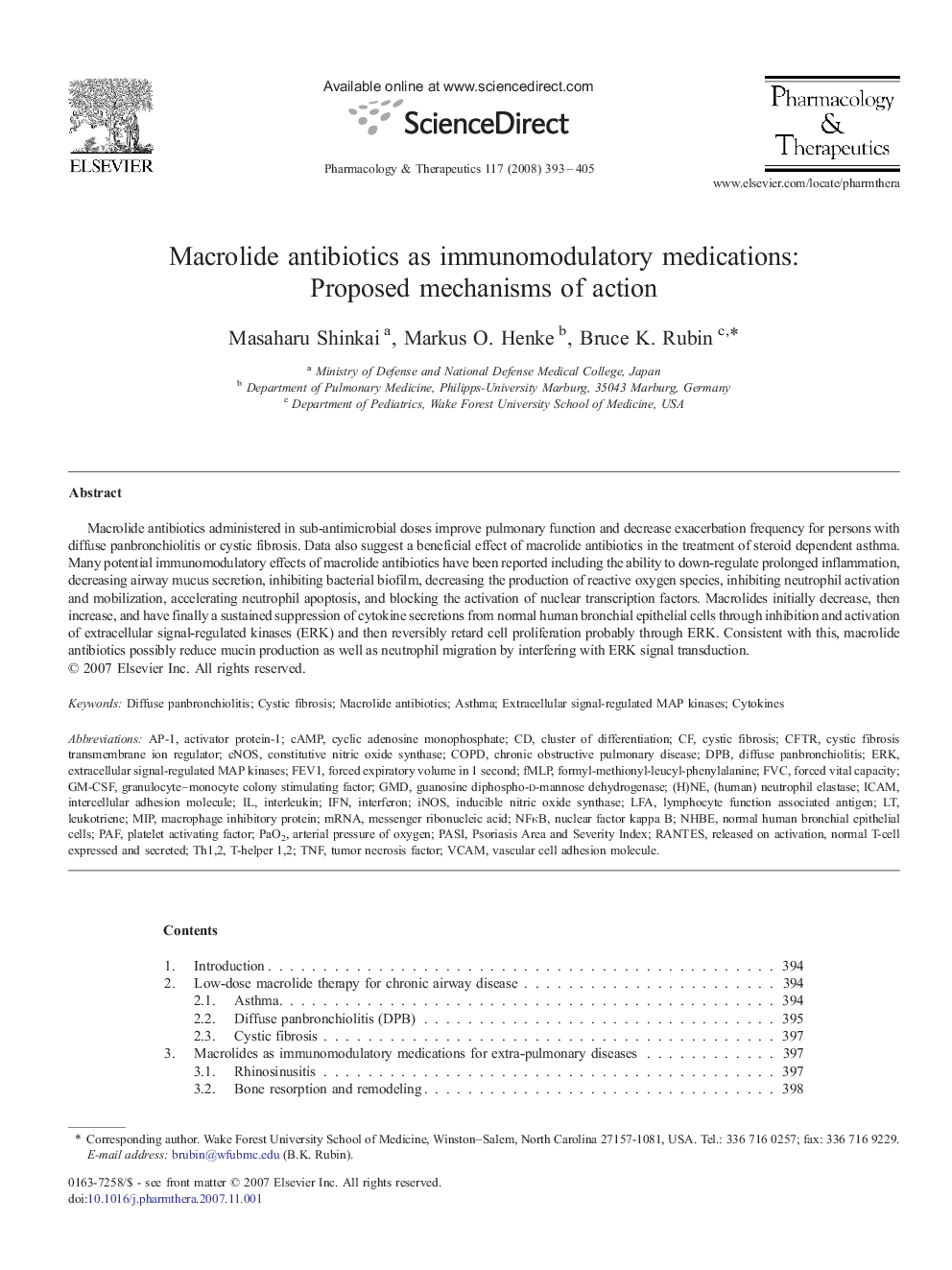| Article ID | Journal | Published Year | Pages | File Type |
|---|---|---|---|---|
| 2564137 | Pharmacology & Therapeutics | 2008 | 13 Pages |
Macrolide antibiotics administered in sub-antimicrobial doses improve pulmonary function and decrease exacerbation frequency for persons with diffuse panbronchiolitis or cystic fibrosis. Data also suggest a beneficial effect of macrolide antibiotics in the treatment of steroid dependent asthma. Many potential immunomodulatory effects of macrolide antibiotics have been reported including the ability to down-regulate prolonged inflammation, decreasing airway mucus secretion, inhibiting bacterial biofilm, decreasing the production of reactive oxygen species, inhibiting neutrophil activation and mobilization, accelerating neutrophil apoptosis, and blocking the activation of nuclear transcription factors. Macrolides initially decrease, then increase, and have finally a sustained suppression of cytokine secretions from normal human bronchial epithelial cells through inhibition and activation of extracellular signal-regulated kinases (ERK) and then reversibly retard cell proliferation probably through ERK. Consistent with this, macrolide antibiotics possibly reduce mucin production as well as neutrophil migration by interfering with ERK signal transduction.
